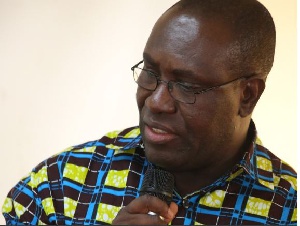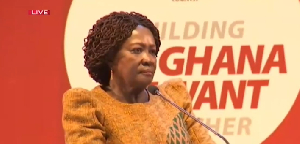Business News of Thursday, 26 July 2018
Source: thefinderonline.com
Mid-year budget silent on number of jobs created - TUC
The Trades Union Congress (TUC) of Ghana says it is unhappy with the silence of the mid-year budget review on the number of jobs created within the period reviewed.
A statement titled ‘Mid-year review of the economic and social situation in Ghana,’ from the Union and presented to the Minister of Finance said “the first thing we expected in the mid-year review was the number of decent jobs created in the economy during the period under review.”
Instead, “we only saw achievements in macroeconomic management based on targets set by IMF.”
Referring to the 2018 Budget statement which, the Union recalled had the Minister of Finance describing unemployment as “the most critical economic problem of our time,” and a statement from Vice President, Dr Mahamudu Bawumia on the importance of job creation in the success of economic policy, the TUC said it was disappointed over the silence of the budget review on job creation.
“The Vice President was right and we agree fully with him, especially in his observation that no matter what government does and no matter the statistics, “if graduates and the youth cannot find jobs to build their lives then all those claims are pointless,” the statement said.
The TUC reckoned that the International Monetary Fund (IMF)was not given to setting targets on employment creation because “it is well documented that IMF programmes destroy jobs. No wonder that we have been witnessing jobless growth in the last three decades during which Ghana has been religiously implementing IMF programmes.”
According to the Union, various studies had shown that over 8 million Ghanaians were in “vulnerable” employment with no access to social or legal protection.
This is one of the reasons why we fully agree with government to bring an end to the IMF programme in December, 2018.
The Trade Union said it was expectant that by the end of the IMF programme, government would fulfill its promise to work closely with the groups the Minister for Finance referred to in the Mid-Year Review as “development partners” namely labour, business leaders, traders, entrepreneurs, civil society organisations, think tanks, faith-based organisations, academia, and traditional leaders so that, together, we can find lasting solutions to the employment challenge which the Minister for Finance aptly described as “the most critical problem of our time.”
Trade policy at variance with job creation efforts
The TUC maintained that Ghana’s trade policy is not conducive for job creation. According to the Union, the large volumes of imports had saturated the country’s markets across the country, an indication that “Ghana is exporting rather than creating jobs.”
“Ghana can create employment in the right quality and quantity if we can produce a significant proportion of what we consume,” the statement said.
TUC subscribes to protectionism
In situations where the private sector struggles to compete with cheap imports, what some countries have done was to find ways of shielding domestic firms that are vital sources of employment.
Ghana’s trade policy is rather exposing our weak and fledgling private sector to unfair competition from countries whose governments are using either covert or overt means of supporting their domestic enterprises to produce cheaply at home for exports.
Entertainment










